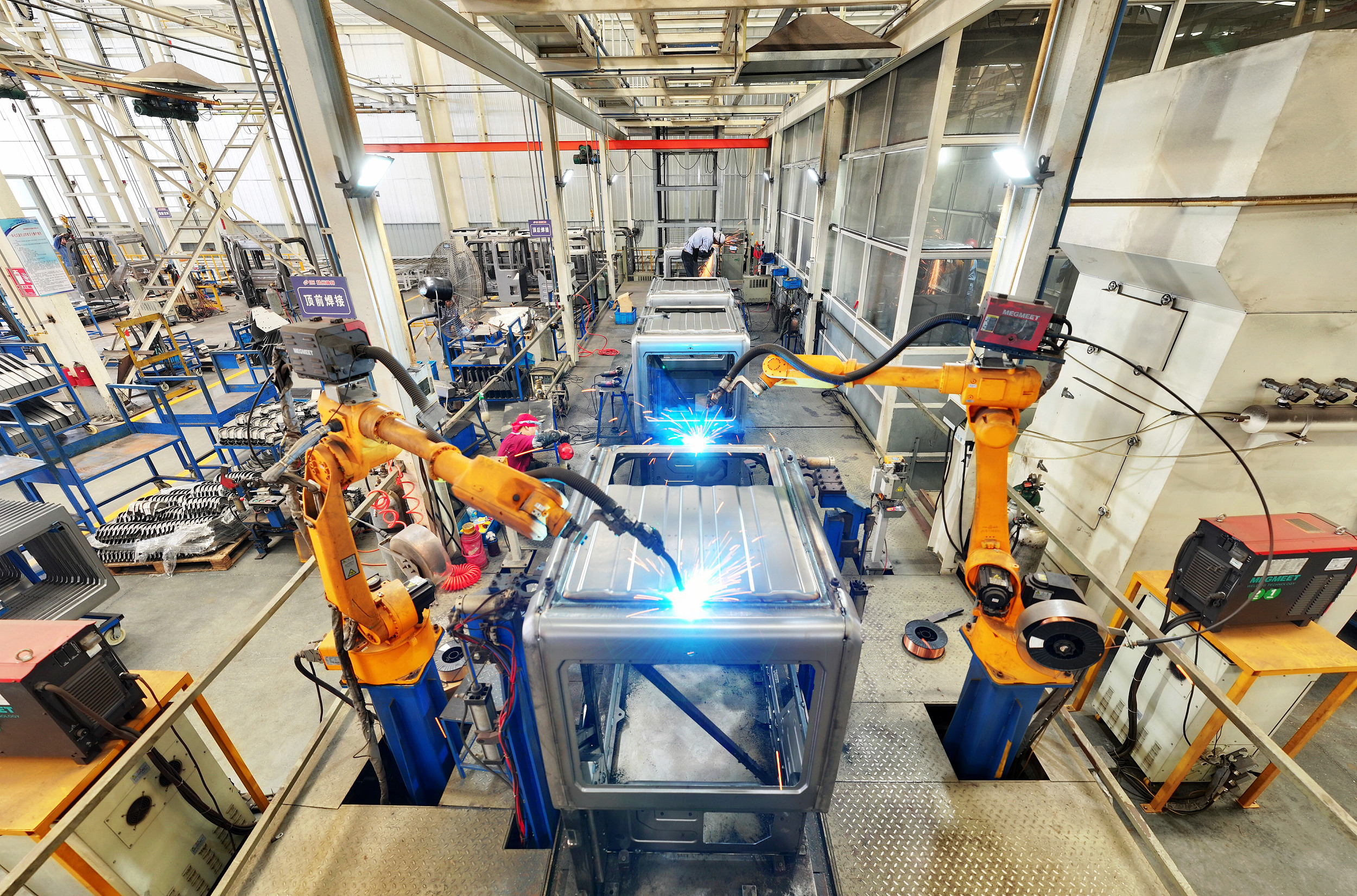Trade Barrier Erodes Global Cooperation

A robot arm performs welding operations on an intelligent production line at a new energy electric vehicle production enterprise in Yangzhou, Jiangsu province, on July 4, 2024. (PHOTO: VCG)
By?TANG?Zhexiao
After Washington raised tariffs on Chinese imports this May, the European Union (EU) announced on June 12 that it will impose extra duties of up to 38 percent on Chinese imported electric vehicles (EVs), starting July 4.
Taking this step has shown the EU's will to protect its auto industry, which is typical protectionism, said Vice Premier Ding Xuexiang, during the fifth China-EU High-Level Environment and Climate Dialogue held in Brussels on June 18.
Such protectionism escalates trade friction and undermines fair competition in the name of fair competition,which is grossly unfair.
A Goldman report noted though Europe was one of the biggest recipients of China's EVs, most of China's production was "for domestic consumption," according to Financial Times.
During Q1 2024, Chinese manufacturing accounted for less than three percent across the 18 monitored Western European new car markets, data from Schmidt Automotive Research showed.
Hungary's Ministry of Foreign Affairs and Trade said in a statement that Hungary disagrees with the brutal European punishment of Chinese electric car manufacturers.
Volker Wissing, Germany's federal minister for digital infrastructure and transport, said on the social media platform X that "Vehicles must become cheaper through more competition, open markets and significantly better location conditions in the EU, not through trade wars and market isolation."
European major car manufacturers such as BMW and Mercedes-Benz also spoke out right away against the duties. They didn't appreciate the EU's kindness of "protection."
The EU Commission was harming European companies and European interests, according to BMW chief executive Oliver Zipse, who added that protectionism risks starting a spiral, as tariffs lead to new tariffs, then to isolation rather than cooperation.
The EU's tariffs on Chinese electric vehicles cannot offer protection to German carmakers or increase their competitiveness, said Maximilian Butek, executive director of the German Chamber of Commerce in China. During a press conference he asked, "Now what is the goal, if you implement those [tariffs] to protect the industry, but the industry says they do not want this protection?"
Electric vehicles are a landmark product of the green and low-carbon energy transition. Besides ignoring the fact that China has the advantage in EV manufacturing to open competition, what the EU did also damaged its green development and would undermine the global cooperation on climate change.
The tariffs might buy some time but will not solve European car manufacturers' challenges. "Protectionism cannot be the answer to restoring European competitiveness," said Benjamin Krieger, secretary general of the European Association of Automotive Suppliers.







